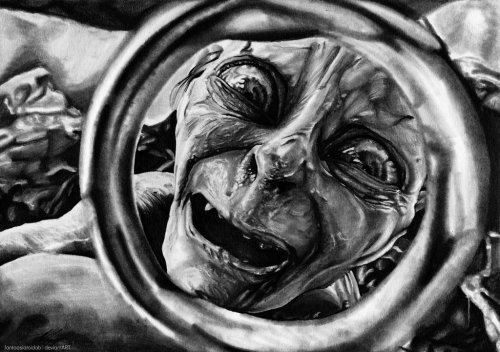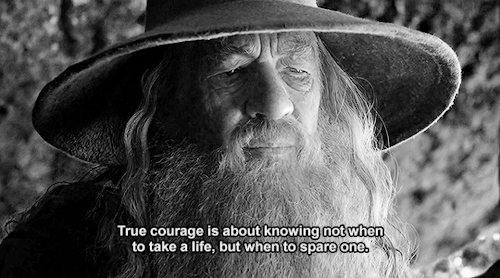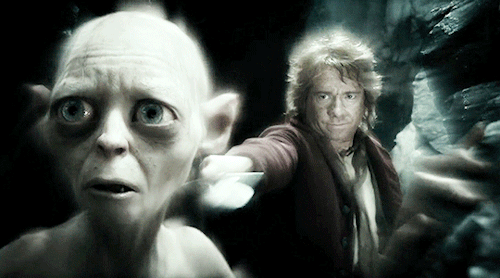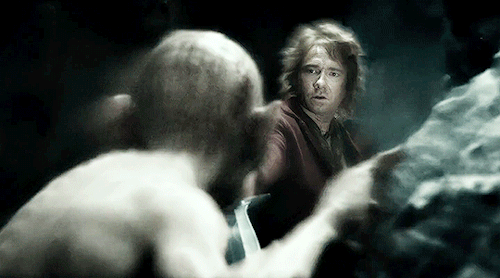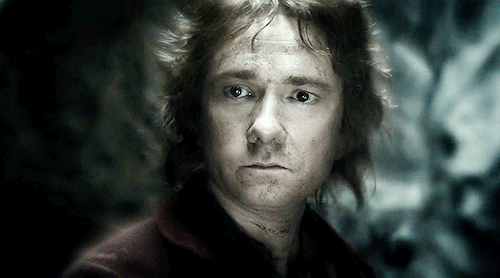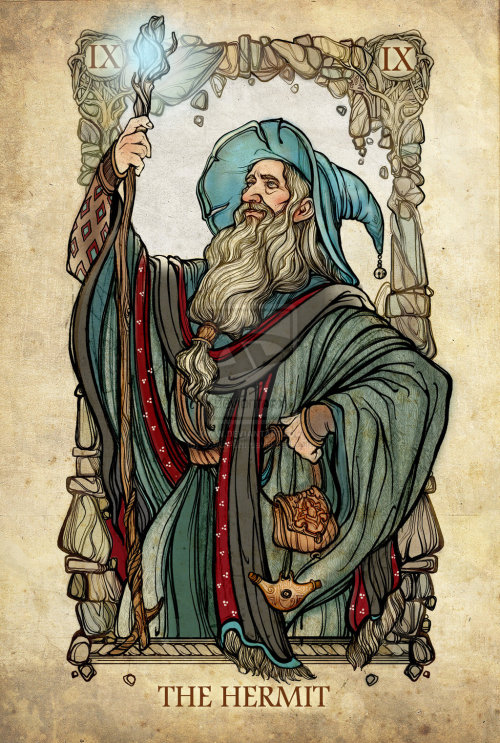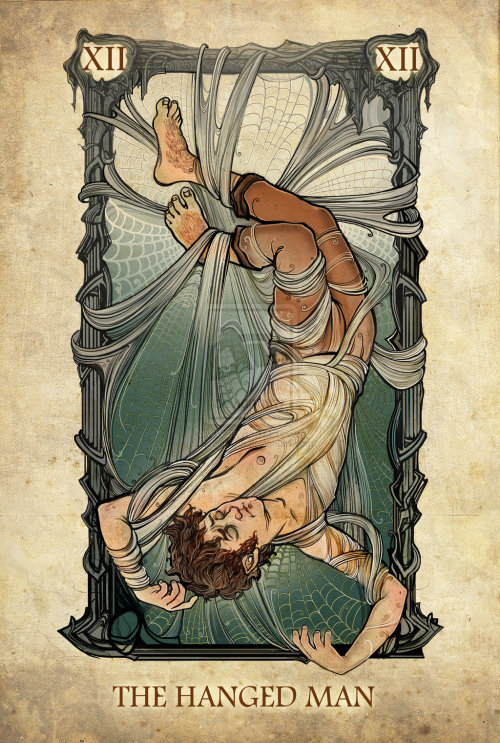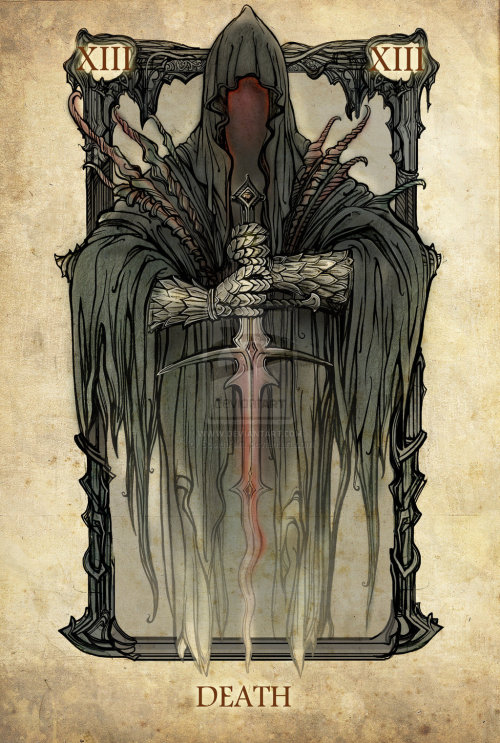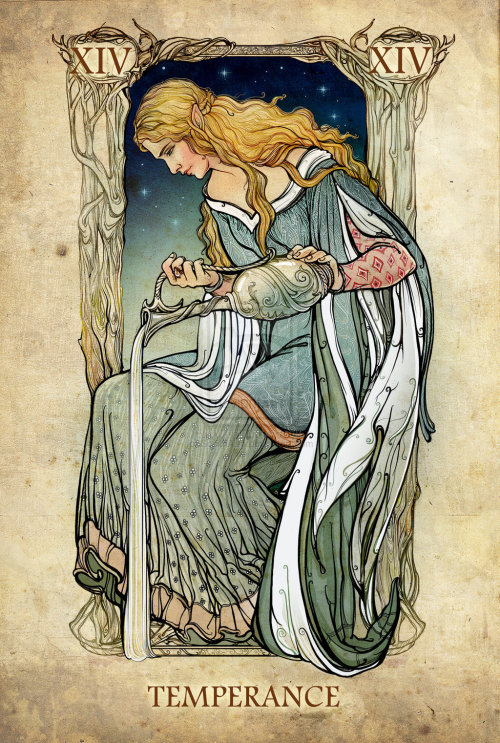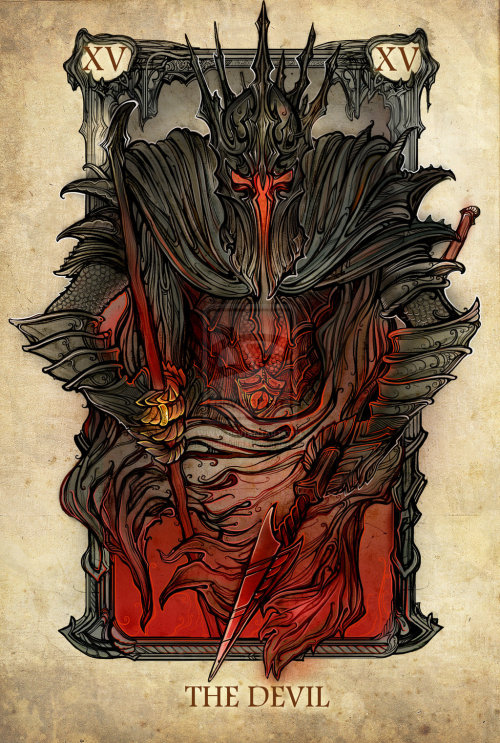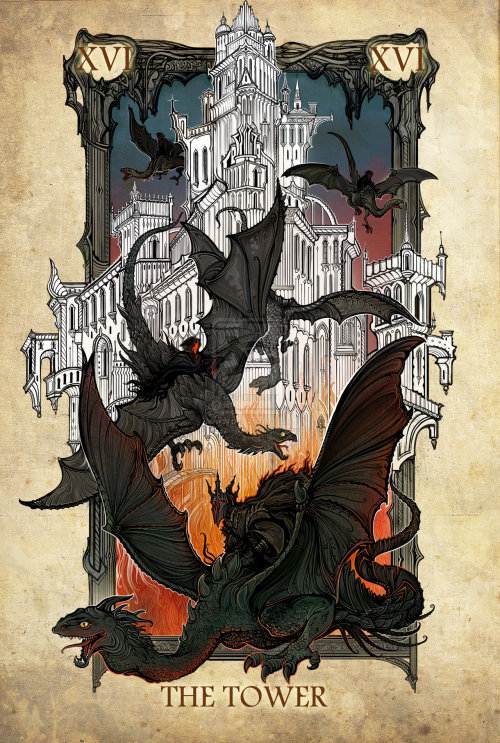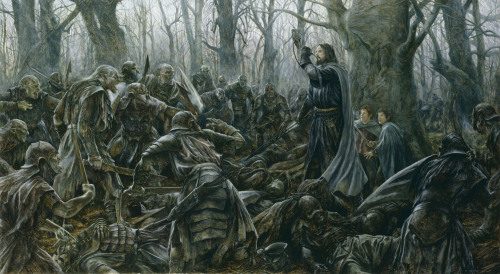#one ring
“Frodo undertook his quest out of love–to save the world he knew from disaster at his own expense, if he could; and also in complete humility, acknowledging that he was wholly inadequate to the task. His real contract was only to do what he could, to try to find a way, and to go as far on the road as his strength of mind and body allowed. He did that. I do not myself see that the breaking of his mind and will under demonic pressure after torment was any more a moral failure than the breaking of his body would have been–say by being strangled by Gollum, or crushed by a falling rock.
That appears to have been the judgement of Gandalf and Aragorn and of all who learned the full story of his journey. Certainly nothing would be concealed by Frodo! But what Frodo himself felt about the events is quite another matter.
He appears at first to have had no sense of guilt; he was restored to sanity and peace. But then he thought that he had given his life in sacrifice: he expected to die very soon. But he did not, and one can observe the disquiet growing in him. Arwen was the first to observe the signs, and gave him her jewel for comfort, and thought of a way of healing him. Slowly he fades ‘out of the picture’, saying and doing less and less. I think it is clear on reflection to an attentive reader that when his dark times came upon him and he was conscious of being 'wounded by knife sting and tooth and a long burden’ it was not only nightmare memories of past horrors that afflicted him, but also unreasoning self-reproach: he saw himself and all that he [had] done as a broken failure. 'Though I may come to the Shire, it will not seem the same, for I shall not be the same.’ That was actually a temptation out of the Dark, a last flicker of pride: desire to have returned as a 'hero’, not content with being a mere instrument of good. And it was mixed with another temptation, blacker and yet (in a sense) more merited, for however that may be explained, he had not in fact cast away the Ring by a voluntary act: he was tempted to regret its destruction, and still to desire it. 'It is gone for ever, and now all is dark and empty’, he said as he wakened from his sickness in 1420.
'Alas! there are some wounds that cannot be wholly cured,’ said Gandalf–not in Middle-earth. Frodo was sent or allowed to pass over the Sea to heal him–if that could be done, before he died. He would have eventually to 'pass away’: no mortal could, or can, abide for ever on earth, or within Time. So he went to both a purgatory and to a reward, for a while: a period of reflection and peace and a gaining of a truer understanding of his position in littleness and in greatness, spent still in Time amid the natural beauty of 'Arda Unmarred’, the Earth unspoiled by evil.”
—J.R.R. Tolkien, The Letters of J.R.R. Tolkien, “246” (Part of his reply to a reader’s comments on Frodo’s failure to surrender the Ring in the Cracks of Doom)
Post link
“In any case a confrontation of Frodo and Sauron would soon have taken place, if the Ring was intact. Its result was inevitable. Frodo would have been utterly overthrown: crushed to dust, or preserved in torment as a gibbering slave. Sauron would not have feared the Ring! It was his own and under his will. Even from afar he had an effect upon it, to make it work for its return to himself. In his actual presence none but very few of equal stature could have hoped to withhold it from him. Of ‘mortals’ no one, not even Aragorn. In the contest with the Palantír Aragorn was the rightful owner. Also the contest took place at a distance, and in a tale which allows the incarnation of great spirits in a physical and destructible form their power must be far greater when actually physically present. Sauron should be thought of as very terrible. The form that he took was that of a man of more than human stature, but not gigantic. In his earlier incarnation he was able to veil his power (as Gandalf did) and could appear as a commanding figure of great strength of body and supremely royal demeanor and countenance.
Of the others only Gandalf might be expected to master him—being an emissary of the Powers and a creature of the same order, an immortal spirit taking a visible physical form. … [However, c]onfrontation of Sauron alone, unaided, self to self was not contemplated. One can imagine a scene in which Gandalf, say, was placed in such a position. It would be a delicate balance. On one side the true allegiance of the Ring to Sauron; on the other the superior strength because Sauron was not actually in possession, and perhaps also because he was weakened by long corruption and expenditure of will in dominating inferiors. If Gandalf proved the victor, the result would have been for Sauron the same as the destruction of the Ring; for him it would have been destroyed, taken from him for ever. But the Ring and all its works would have endured. It would have been the master in the end.“
—J.R.R. Tolkien, The Letters of J.R.R. Tolkien, ”246” (What would have happened in a confrontation with Sauron if Frodo or Gandalf had taken the Ring)
Post link
Melkor “incarnated himself” (as Morgoth) permanently. He did this so as to control the hroa, the “flesh” or physical matter, of Arda. He attempted to identify himself with it. A vaster, and more perilous, procedure, though of similar sort to the operation of Sauron with the Rings. Thus, outside the Blessed Realm, all “matter” was likely to have a “Melkor ingredient”, and those who had bodies, nourished by the hora of Arda, had as it were a tendency, small or great, towards Melkor: they were none of them wholly free of him in their incarnate form, and their bodies had an effect upon their spirits. But in this way Morgoth lost (or exchanged, or transmuted) the greater part of his original “angelic” powers, of mind and spirit, while gaining a terrible grip upon the physical world. For this reason he had to be fought, mainly by physical force, and enormous material ruin was a probable consequence of any direct combat with him, victorious or otherwise.
—-
This is the chief explanation of the constant reluctance of the Valar to come into open battle against Morgoth. Manwë’s task and problem was much more difficult than Gandalf’s. Sauron’s, relatively smaller, power was concentrated; Morgoth’s vast power was disseminated. The whole of “Middle-earth” was Morgoth’s Ring, though temporarily his attention was mainly upon the North-west. Unless swiftly successful, War against him might well end in reducing all Middle-earth to chaos, possibly even all Arda.
—-
It is easy to say: “It was the task and function of the Elder King to govern Arda and make it possible for the Children of Eru to live in it unmolested.” But the dilemma of the Valar was this: Arda could only be liberated by a physical battle; but a probable result of such a battle was the irretrievable ruin of Arda. Moreover, the final eradication of Sauron (as a power directing evil) was achievable by the destruction of the Ring. No such eradication of Morgoth was possible, since this required the complete disintegration of the “matter” of Arda.Morgoth’s Ring - The History of Middle-Earth - J.R.R. Tolkien
Post link
[Sauron] rules a growing empire from the great dark tower of Barad-dûr in Mordor, near to the Mountain of Fire, wielding the One Ring.
But to achieve this he had been obliged to let a great part of his own inherent power (a frequent and very significant motive in myth and fairy-story) pass into the One Ring. While he wore it, his power on earth was actually enhanced. But even if he did not wear it, that power existed and was in ‘rapport’ with himself: he was not 'diminished’. Unless some other seized it and became possessed of it. If that happened, the new possessor could (if sufficiently strong and heroic by nature) challenge Sauron, become master of all that he had learned or done since the making of the One Ring, and so overthrow him and usurp his place. This was the essential weakness he had introduced into his situation in his effort (largely unsuccessful) to enslave the Elves, and in his desire to establish a control over the minds and wills of his servants. There was another weakness: if the One Ring was actually unmade, annihilated, then its power would be dissolved, Sauron’s own being would be diminished to vanishing point, and he would be reduced to a shadow, a mere memory of malicious will. But that he never contemplated nor feared. The Ring was unbreakable by any smithcraft less than his own. It was indissoluble in any fire, save the undying subterranean fire where it was made–and that was unapproachable, in Mordor. Also so great was the Ring’s power of lust, that anyone who used it became mastered by it; it was beyond the strength of any will (even his own) to injure it, cast it away, or neglect it. So he thought. It was in any case on his finger.
–J.R.R. Tolkien, The Letters of J.R.R. Tolkien, #131
Post link
No one answered. The noon-bell rang. Still no one spoke. Frodo glanced at all the faces, but they were not turned to him. All the Council sat with downcast eyes, as if in deep thought. A great dread fell on him, as if he was awaiting the pronouncement of some doom that he had long foreseen and vainly hoped might after all never be spoken. An overwhelming longing to rest and remain at peace by Bilbo’s side in Rivendell filled all his heart. At last with an effort he spoke, and wondered to hear his own words, as if some other will was using his small voice.
‘I will take the Ring,’ he said, ‘though I do not know the way.’
Elrond raised his eyes and looked at him, and Frodo felt his heart pierced by the sudden keenness of the glance. ‘If I understand aright all that I have heard,’ he said, ‘I think that this task is appointed for you, Frodo; and that if you do not find a way, no one will. This is the hour of the Shire-folk, when they arise from their quiet fields to shake the towers and counsels of the Great. Who of all the Wise could have foreseen it? Or, if they are wise, why should they expect to know it, until the hour has struck?
‘But it is a heavy burden. So heavy that none could lay it on another. I do not lay it on you. But if you take it freely, I will say that your choice is right; and though all the mighty elf-friends of old, Hador, and Húrin, and Túrin, and Beren himself were assembled together your seat should be among them.’
—J.R.R. Tolkien, The Lord of the Rings: The Fellowship of the Ring, “The Council of Elrond"
Post link
“Gollum was captured in Mordor in the year 3017 and taken Barad-dûr, and there questioned and tormented. When he had learned what he could from him, Sauron released him and sent him forth again. He did not trust Gollum, for he divined something indomitable in him, which could not be overcome, even by the Shadow of Fear, except by destroying him. But Sauron perceived the depth of Gollum’s malice towards those that had "robbed” him, and guessing that he would go in search of them to avenge himself, Sauron hoped that his spies would thus be led to the Ring.
Gollum, however, was before long captured by Aragorn, and taken to Northern Mirkwood; and though he was followed, he could not be rescued before he was in safe keeping. Now Sauron had never paid heed to the “Halflings,” even if he had heard of them, and he did not yet know where their land lay. From Gollum, even under pain, he could not get any clear account, both because Gollum indeed had no certain knowledge himself, and because what be knew he falsified. Ultimately indomitable he was, except by death, as Sauron did not fully comprehend, being himself consumed by lust for the Ring. Then he became filled with a hatred of Sauron even greater than his terror, seeing in him truly his greatest enemy and rival. Thus it was that he dared to pretend that he believed that the land the Halflings was near to the places where he had once dwelt beside the banks of the Gladden.“
–J.R.R. Tolkien, Unfinished Tales, "The Hunt for the Ring”
(Edit: It appears that Tumblr’s new format no longer displays the content source in the upper-right corner, so here is the sourcefor the artwork.)
Post link
As Sam stood there, even though the Ring was not on him but hanging by its chain about his neck, he felt himself enlarged, as if he were robed in a huge distorted shadow of himself, a vast and ominous threat halted upon the walls of Mordor. He felt that he had from now on only two choices: to forbear the Ring, though it would torment him; or to claim it, and challenge the Power that sat in its dark hold beyond the valley of shadows. Already the Ring tempted him, gnawing at his will and reason. Wild fantasies arose in his mind; and he saw Samwise the Strong, Hero of the Age, striding with a flaming sword across the darkened land, and armies flocking to his call as he marched to the overthrow of Barad-dûr. And then all the clouds rolled away, and the white sun shone, and at his command the vale of Gorgoroth became a garden of flowers and trees and brought forth fruit. He had only to put on the Ring and claim it for his own, and all this could be.
In that hour of trial it was the love of his master that helped most to hold him firm; but also deep down in him lived still unconquered his plain hobbit-sense: he knew in the core of his heart that he was not large enough to bear such a burden, even if such visions were not a mere cheat to betray him. The one small garden of a free gardener was all his need and due, not a garden swollen to a realm; his own hands to use, not the hands of others to command.
–J.R.R. Tolkien The Lord of the Rings: The Return of the King, “The Tower of Cirith Ungol”

One day ❤️
I think I want to emulate the tone shift in the Hobbit, after the death of Smaug. A lot of characters are thinking “this is it, a great evil is gone and it’s all gold and cucumber sandwiches from here”. And then all the dominoes that have been set up start tipping, with friends betraying each other and rivals closing in on the Lonely Mountain.
It’s a classic quest narrative that deals with the fallout from the quest. Try something similar with your players! Don’t detract from the achievements they’ve made, but ask them - what do you think is going to happen next? Ask yourself who is going to benefit from this, and who wants revenge, and who didn’t get what they deserved?
What if you flash forward to the little town where the party brings all their treasure, and they’ve raised all the prices tenfold! The streets are buzzing with greed, business booms and suddenly the first person who touched the dragon’s hoard drops dead. Give them the panic, a few days of looking for a cure, and then the King marches an army down to prevent the cursed gold from spreading.
Idea: a wacky yet dark and intense campaign where you play a group of orcs in Middle Earth. I bet you could run it by hacking the One Ring RPG system just a little…
As you make schemes and seize things from the stupid Elves and Men, remember that being a goblin is also about having horrible food and singing horrible songs together. Sauron even invented a Team Rocket style cheer back in the First Age!
Boromir was a valiant warrior known in Gondor for his greatness, having already achieved great merit in Gondor prior to the Council of Elrond. He was the eldest son of Denethor II, who was Steward of Gondor during the War of the Ring. Even the people of Rohan admired him.
Boromir disliked the idea of destroying the One Ring, as he believed that it could be used to defeat Sauron once and for all, to save Gondor, and return it to its former glory.
“Why should we not think that the Great Ring has come into our hands to serve us in the very hour of need? Wielding it the Free Lords of the Free may surely defeat the Enemy.”
Post link


7 minutes to midnight! Just in time for the first day of Inktober! The one ring.

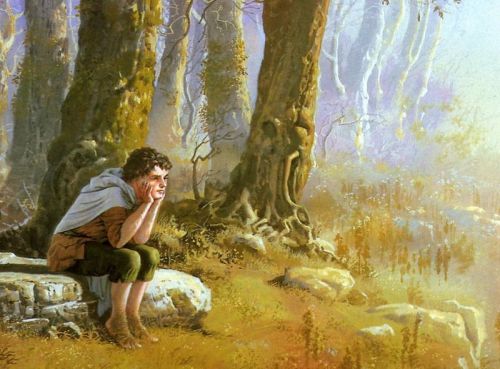


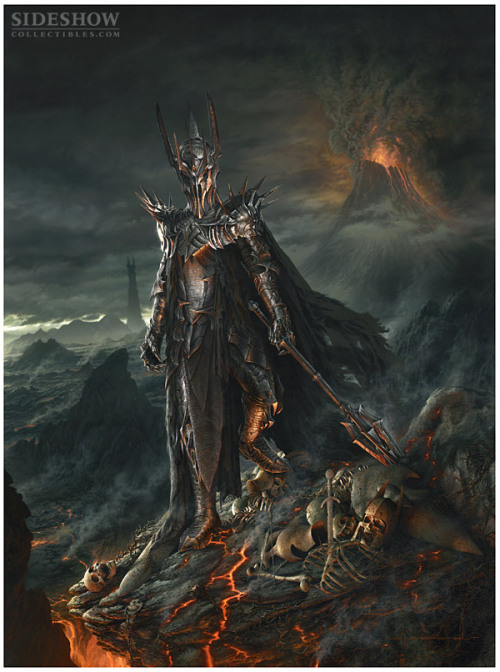
![[Sauron] rules a growing empire from the great dark tower of Barad-dûr in Mordor, near to the Mounta [Sauron] rules a growing empire from the great dark tower of Barad-dûr in Mordor, near to the Mounta](https://64.media.tumblr.com/eb3f74432452155a3be2af149f78de1d/tumblr_mpkfwsNV7T1rtwlb5o1_500.jpg)

